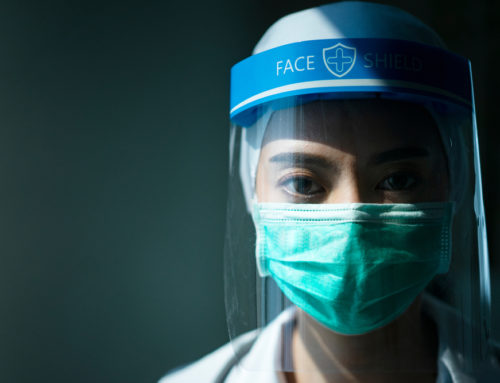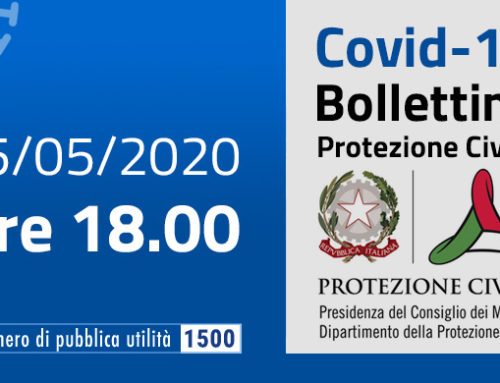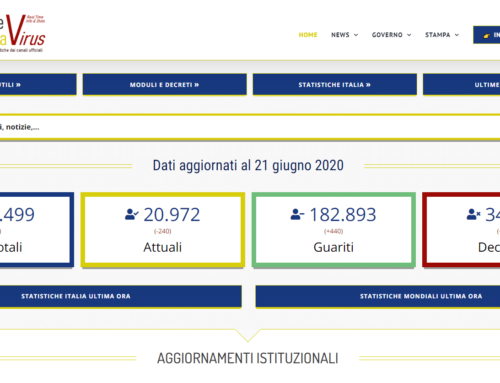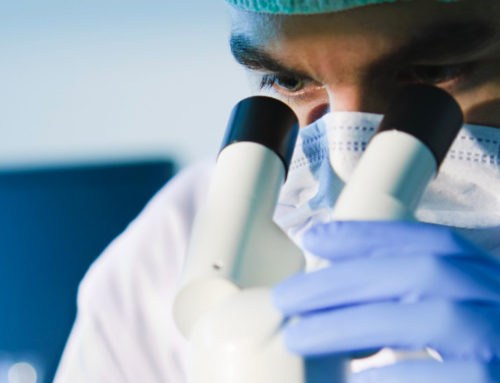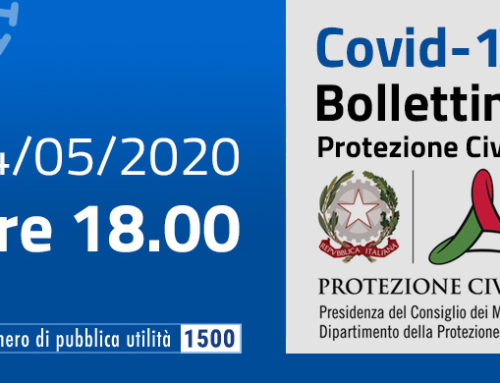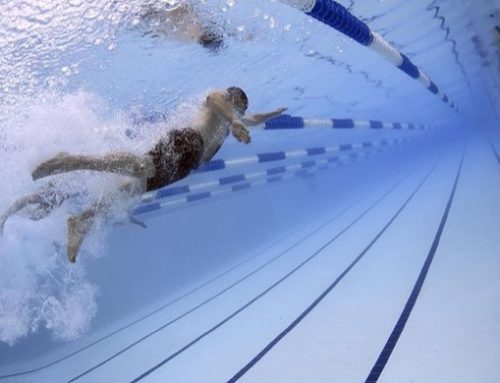WHO: incertezza sul “passaporto di immunità”
Non ci sono ancora prove scientifiche che le persone che sono guarite dal Covid-19 abbiano anticorpi che proteggono da una seconda infezione.
Rif.: Ministero della Salute – WHO
L’incertezza sul “passaporto di immunità”
In un documento appena pubblicato l’Oms ricorda che non ci sono ancora prove scientifiche che le persone che sono guarite dal Covid-19 abbiano anticorpi che proteggono da una seconda infezione”. A questo punto della pandemia non ci sono abbastanza evidenze sull’efficacia dell’immunità data dagli anticorpi per garantire l’accuratezza di un ‘passaporto di immunità’ o un ‘certificato di libertà dal rischio'” scrive l’Oms.
Il testo del documento ufficiale (in pdf più sotto).

“Immunity passports” in the context of COVID-19
Scientific brief – 24 April 2020
WHO has published guidance on adjusting public health and social measures for the next phase of the COVID-19 response.1 Some governments have suggested that the detection of antibodies to the SARS-CoV-2, the virus that causes COVID-19, could serve as the basis for an “immunity passport” or “risk-free certificate” that would enable individuals to travel or to return to work assuming that they are protected against re-infection. There is currently no evidence that people who have recovered from COVID-19 and have antibodies are protected from a second infection.
The measurement of antibodies specific to COVID-19
The development of immunity to a pathogen through natural infection is a multi-step process that typically takes place over 1-2 weeks. The body responds to a viral infection immediately with a non-specific innate response in which macrophages, neutrophils, and dendritic cells slow the progress of virus and may even prevent it from causing symptoms. This non-specific response is followed by an adaptive response where the body makes antibodies that specifically bind to the virus. These antibodies are proteins called immunoglobulins. The body also makes T-cells that recognize and eliminate other cells infected with the virus. This is called cellular immunity. This combined adaptive response may clear the virus from the body, and if the response is strong enough, may prevent progression to severe illness or re-infection by the same virus. This process is often measured by the presence of antibodies in blood.
WHO continues to review the evidence on antibody responses to SARS-CoV-2 infection.2-17 Most of these studies show that people who have recovered from infection have antibodies to the virus. However, some of these people have very low levels of neutralizing antibodies in their blood,4 suggesting that cellular immunity may also be critical for recovery. As of 24 April 2020, no study has evaluated whether the presence of antibodies to SARS-CoV-2 confers immunity to subsequent infection by this virus in humans.
Laboratory tests that detect antibodies to SARS-CoV-2 in people, including rapid immunodiagnostic tests, need further validation to determine their accuracy and reliability. Inaccurate immunodiagnostic tests may falsely categorize people in two ways. The first is that they may falsely label people who have been infected as negative, and the second is that people who have not been infected are falsely labelled as positive. Both errors have serious consequences and will affect control efforts. These tests also need to accurately distinguish between past infections from SARS-CoV-2 and those caused by the known set of six human coronaviruses. Four of these viruses cause the common cold and circulate widely. The remaining two are the viruses that cause Middle East Respiratory Syndrome and Severe Acute Respiratory Syndrome. People infected by any one of these viruses may produce antibodies that cross-react with antibodies produced in response to infection with SARS-CoV-2.
Many countries are now testing for SARS-CoV-2 antibodies at the population level or in specific groups, such as health workers, close contacts of known cases, or within households.21 WHO supports these studies, as they are critical for understanding the extent of – and risk factors associated with – infection. These studies will provide data on the percentage of people with detectable COVID-19 antibodies, but most are not designed to determine whether those people are immune to secondary infections.
Other considerations
At this point in the pandemic, there is not enough evidence about the effectiveness of antibody-mediated immunity to guarantee the accuracy of an “immunity passport” or “risk-free certificate.” People who assume that they are immune to a second infection because they have received a positive test result may ignore public health advice. The use of such certificates may therefore increase the risks of continued transmission. As new evidence becomes available, WHO will update this scientific brief.
Traduzione in italiano (Google)
La misurazione di anticorpi specifici per COVID-19
Lo sviluppo dell’immunità a un patogeno attraverso l’infezione naturale è un processo in più fasi che si svolge in genere nell’arco di 1-2 settimane. Il corpo risponde immediatamente a un’infezione virale con una risposta innata non specifica in cui i macrofagi, i neutrofili e le cellule dendritiche rallentano il progresso del virus e possono persino impedire che causi sintomi. Questa risposta non specifica è seguita da una risposta adattativa in cui il corpo produce anticorpi che si legano specificamente al virus. Questi anticorpi sono proteine chiamate immunoglobuline. Il corpo produce anche cellule T che riconoscono ed eliminano altre cellule infettate dal virus. Questo si chiama immunità cellulare. Questa risposta adattativa combinata può eliminare il virus dal corpo e, se la risposta è abbastanza forte, può prevenire la progressione a malattia grave o reinfezione da parte dello stesso virus.
L’OMS continua a rivedere le prove sulle risposte anticorpali all’infezione da SARS-CoV-2.2-17 La maggior parte di questi studi mostra che le persone che si sono riprese dall’infezione hanno anticorpi contro il virus. Tuttavia, alcune di queste persone hanno livelli molto bassi di anticorpi neutralizzanti nel sangue, 4 suggerendo che l’immunità cellulare può anche essere fondamentale per il recupero. Al 24 aprile 2020, nessuno studio ha valutato se la presenza di anticorpi contro SARS-CoV-2 conferisca l’immunità alla successiva infezione da questo virus nell’uomo.
I test di laboratorio che rilevano gli anticorpi contro la SARS-CoV-2 nelle persone, compresi i test immunodiagnostici rapidi, necessitano di ulteriori convalide per determinarne l’accuratezza e l’affidabilità. Test immunodiagnostici imprecisi possono classificare erroneamente le persone in due modi. Il primo è che possono etichettare falsamente le persone che sono state infettate come negative, e il secondo è che le persone che non sono state infettate sono erroneamente etichettate come positive. Entrambi gli errori hanno gravi conseguenze e influenzeranno gli sforzi di controllo. Questi test devono anche distinguere accuratamente tra le infezioni passate da SARS-CoV-2 e quelle causate dall’insieme noto di sei coronavirus umani. Quattro di questi virus causano il raffreddore comune e circolano ampiamente. I restanti due sono i virus che causano la sindrome respiratoria mediorientale e la sindrome respiratoria acuta grave.
Molti paesi stanno testando gli anticorpi SARS-CoV-2 a livello di popolazione o in gruppi specifici, come gli operatori sanitari, i contatti stretti di casi noti o all’interno delle famiglie.21 L’OMS sostiene questi studi, poiché sono fondamentali per comprendere l’estensione di – e fattori di rischio associati a – infezione. Questi studi forniranno dati sulla percentuale di persone con anticorpi COVID-19 rilevabili, ma la maggior parte non è progettata per determinare se queste persone sono immuni alle infezioni secondarie.
Altre considerazioni
A questo punto della pandemia, non ci sono prove sufficienti sull’efficacia dell’immunità mediata da anticorpi per garantire l’accuratezza di un “passaporto dell’immunità” o di un “certificato privo di rischio”. Le persone che presumono di essere immuni a una seconda infezione perché hanno ricevuto un risultato di test positivo possono ignorare i consigli sulla salute pubblica. L’uso di tali certificati può quindi aumentare i rischi di una trasmissione continua. Non appena saranno disponibili nuove prove, l’OMS aggiornerà questo documento scientifico.
Riferimenti
1. Considerations in adjusting public health and social measures in the context of COVID-19. https://www.who.int/emergencies/diseases/novel-coronavirus-2019/technical-guidance/critical-preparedness-readiness-and-response-actions-for-covid-19
2. Wölfel R, Corman VM, Guggemos W, et al. Virological assessment of hospitalized patients with COVID-2019. Nature 2020.
3. To KK, Tsang OT, Leung WS, et al. Temporal profiles of viral load in posterior oropharyngeal saliva samples and serum antibody responses during infection by SARS-CoV-2: an observational cohort study. Lancet Infect Dis. 2020 Mar 23. pii: S1473-3099(20)30196-1. doi: 10.1016/S1473-3099(20)30196-1.
4. Wu F, Wang A, Liu M, et al. Neutralizing antibody responses to SARS-CoV-2 in a COVID-19 recovered patient cohort and their implications. medRxiv 2020: 2020.03.30.20047365.
5. Ju B, Zhang Q, Ge X, et al. Potent human neutralizing antibodies elicited by SARS-CoV-2 infection. Biorxiv 2020: 2020.03.21.990770.
6. Poh CM, Carissimo G, Wang B, et al. Potent neutralizing antibodies in the sera of convalescent COVID-19 patients are directed against conserved linear epitopes on the SARS-CoV-2 spike protein. Biorxiv 2020: 2020.03.30.015461.
7. Zhang W, Du R, Li B, Zheng X, et al. Molecular and serological investigation of 2019-nCoV infected patients: implication of multiple shedding routes. Emerg Microbes Infect. 2020 Feb 17; 9(1):386-389. doi: 10.1080/22221751.2020.1729071.
8. Grzelak L, Temmam L, Planchais C, et al. SARS-CoV-2 serological analysis of COVID-19 hospitalized patients, pauci-symptomatic individuals and blood donors. medRxiv 2020 (submitted 17 April 2020).
9. Amanat F, Nguyen T, Chromikova V, et al. A serological assay to detect SARS-CoV-2 seroconversion in humans. medRxiv 2020: 2020.03.17.20037713.
10. Okba NMA, Müller MA, Li W, et al. Severe acute respiratory syndrome coronavirus 2−specific antibody responses in coronavirus disease 2019 patients. Emerg Infect Dis. 2020 doi: 10.3201/eid2607.200841
11. Zhao J, Yuan Q, Wang H, et al. Antibody responses to SARS-CoV-2 in patients of novel coronavirus disease 2019. Clin Infect Dis. 2020 doi: 10.1093/cid/ciaa344
12. Guo L, Ren L, Yang S, et al. Profiling Early Humoral Response to Diagnose Novel Coronavirus Disease (COVID-19). Clin Infect Dis. 2020 Mar 21. doi: 10.1093/cid/ciaa310.
13. Liu Y, Liu Y, Diao B, Ren Feifei, et al. Diagnostic indexes of a rapid IgG/IgM combined antibody test for SARS-CoV-2. medRxiv 2020; doi: 10.1101/2020.03.26.20044883
14. Zhang P, Gao Q, Wang T, Ke Y, et al. Evaluation of recombinant nucleocapsid and spie protein serological diagnosis of novel coronavirus disease 2019 (COVID-19). medRxiv. 2020; doi: 10.1101/2020.03.17.20036954
15. Pan Y, Li X, Yang G, Fan J, et al. Serological immunochromatographic approach in diagnosis with SARS-CoV-2 infected COVID-19 patients. medRxiv. 2020; doi: 10.1101/2020.03.13.20035428
16. Li Z, Yi Y, Luo X, Xion N, et al. Development and clinical application of a rapid IgM-IgG combined antibody test for SARS-CoV-2 infection diagnosis. J Med Virol. 2020 Feb 27. doi: 10.1002/jmv.25727.
17. Li R, Pei S, Chen B, et al. Substantial undocumented infection facilitates the rapid dissemination of novel coronavirus (SARS-CoV2). Science 2020.
18. Lou B, Li T, Zheng S, Su Y, Li Z, Liu W, et al. Serology characteristics of SARS-CoV-2 infection since the exposure and post symptoms onset. medRxiv 2020; doi: 10.1101/2020.03.23.20041707
19. Lin D, Liu L, Zhang M, Hu Y, et al. Evaluation of serological tests in the diagnosis of 2019 novel coronavirus (SARS-CoV-2) infections during the COVID-19 outbreak. medRxiv 2020. doi: 10.1101/2020.03.27.20045153
20. Liu W, Liu L, Kou G, Zheng Y, et al. Evaluation of nucleocapsid and spike protein-based ELISAs for detecting antibodies against SARS-CoV-2. medxriv [Internet]. 2020; Available from: https://doi.org/10.1101/2020.03.16.20035014 medRxiv preprint
21. Unity Studies: Early Investigation Protocols https://www.who.int/emergencies/diseases/novel-coronavirus-2019/technical-guidance/early-investigations
WHO continues to monitor the situation closely for any changes that may affect this interim guidance. Should any factors change, WHO will issue an update. Otherwise, this scientific brief will expire 1 year after the date of publication.
© World Health Organization 2020. Some rights reserved. This work is available under the CC BY-NC-SA 3.0 IGO license.
Ultime notizie dai Social



